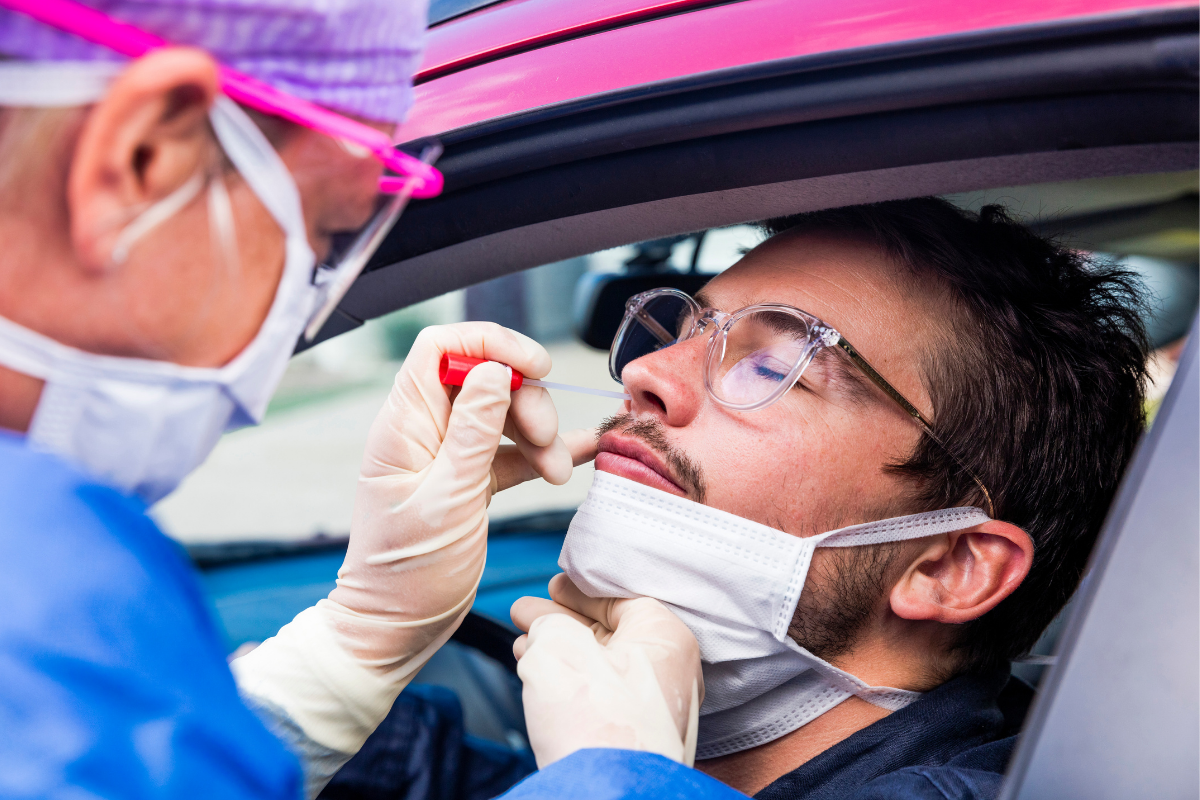
The U.S. Food and Drug Administration (FDA) has approved the first-ever nasal swab test that can be done at home.
FDA gave a green light to the single-use nasal swab test, which produces results within 30 minutes, for people aged 14 and over if their health-care provider believes they may have contracted the coronavirus.
California-based biotech company, Lucira Health produced the test kit, which can also be used in hospitals, though a health-care provider must be the one to collect a sample from patients under 14.
The FDA did not disclose the price of the nasal swab test. However, Lucira Health's website says the test is “intended to cost less than $50.”
“While Covid-19 diagnostic tests have been authorized for at-home collection, this is the first that can be fully self-administered and provide results at home,” FDA Commissioner Stephen Hahn said in a press release.
“This new testing option is an important diagnostic advancement to address the pandemic and reduce the public burden of disease transmission,” he noted.
The nasal swab test requires swirling a patient’s self-collected sample swab in a vial. Results become apparent on the test’s light-up display within 30 minutes.
According to the FDA, individuals who test positive must self-isolate and tap additional care from their health-care provider. Those that turned out negative and experience Covid-like symptoms should also follow up with their health-care provider, it added.
Convalescent plasma
In August, FDA granted emergency authorization of convalescent plasma for Covid-19 treatment.
According to the FDA, there is reason to regard convalescent plasma as an effective treatment for Covid-19 patients and that the identified and potential benefits outweigh the potential risks of such products.
Several health authorities are worried about the use of convalescent plasma because the data from its clinical trials is not enough to ensure the effectiveness of its widespread application. The
“Today’s action will dramatically expand access to this treatment,” President Donald Trump said at a White House press briefing on Sunday evening, a day before the Republican National Convention. “We’re removing unnecessary barriers and delays.”
According to the Mayo Clinic, which is studying the treatment, the convalescent plasma treatment involves the use of blood from recovered Covid-19 patients who were able to develop antibodies against the virus and injects it into patients who contracted the virus to prevent severe cases.
Some health experts, such as White House coronavirus advisor Dr. Anthony Fauci and Dr. Francis Collins, the director of the National Institutes of Health, warned about the insufficient data on the country’s largest blood plasma study. Their concern about weak data compelled the FDA to postpone granting emergency authorization for the blood treatment.
Clinical trials have not determined whether convalescent plasma can aid patients in fighting the coronavirus. However, an emergency authorization does not require the same amount of proof for FDA approval. To date, there is no FDA-approved drug or vaccine against the coronavirus yet.
Blood plasma treatment has slashed Covid-19 mortality by 35%, according to Trump.
He previously expressed his rage against FDA’s decision to put an emergency authorization on hold until more data is evaluated, claiming last week that the decision may be politically motivated.






